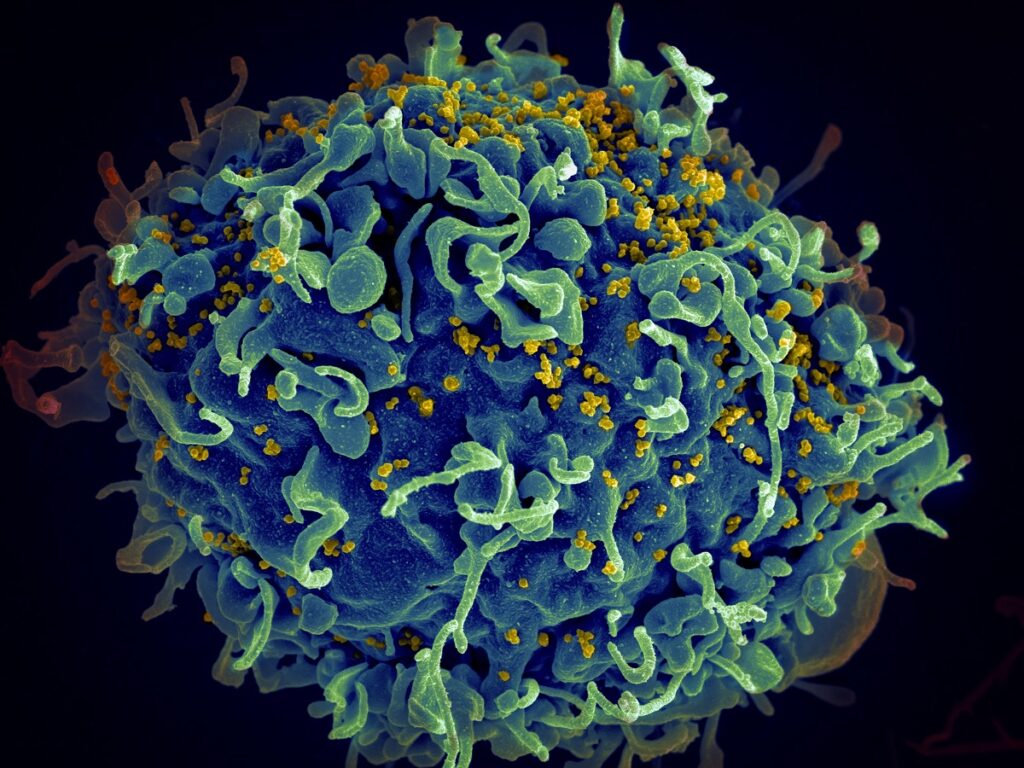Positive results in trials of cancer treatments were announced by the biotech firms Nkarta and Novartis this week.
Nkarta trial shows benefits of ‘natural killer’ cells
Nkarta, a biopharma company developing engineered natural killer cell therapies to treat cancer, on Monday announced positive results from its Phase 1 dose escalation study of NKX019 as monotherapy to treat patients with relapsed or refractory non-Hodgkin lymphoma (NHL).
According to Nkarta, seven in 10 patients who received NKX019 monotherapy at new, higher doses of 1 billion and 1.5 billion CAR NK cells saw a complete response (CR rate of 70%), with multiple patients seeing effects that last longer than six months.
“NKX019 continues to demonstrate impressive single-agent activity, preliminary durability, and an encouraging safety profile as an off-the-shelf, on-demand cell therapy for heavily pre-treated patients with NHL,” said Nkarta President and CEO Paul Hastings. “Based on this initial success, we recently opened dose expansion cohorts to explore combination and single-agent regimens in patients with LBCL (large B-cell lymphoma), an especially aggressive form of lymphoma, and to address the large unmet need in patients who have received prior autologous CAR T therapy. We remain committed to improved access for patients through the integration of cell therapy into the broader outpatient setting.”

Already shown to achieve complete remission in some patients in an earlier trial using lower doses, NKX019 is a therapy that employs chimeric antigen receptor natural killer cells (CAR NK cells). Therapy with CAR NK cells, made with “off-the-shelf allogeneic manufacturing” is seen as a way to avoid the side effects that can accompany personalized therapy using CAR T cells (“chimeric antigen receptor T cells”), according to a report in the Oschner Journal. As an “off-the-shelf” treatment, CAR NK cell therapies may also offer other advantages over personalized treatments, according to Research Outreach. As Endpoints explained, CAR NK cells “are allogeneic, meaning doctors don’t need to go through the long process of harvesting cells from patients themselves and engineering them. And while most CAR Ts are only infused once, some patients in the Nkarta trial were given multiple cycles of NKX019.”
Trial suggests Novartis Kisqali outperforms chemo
Novartis on Tuesday announced positive results from the RIGHT Choice Phase II trial, the first randomized trial in patients with aggressive HR+/HER2 metastatic breast cancer (MBC), including visceral crises, contrasting a CDK4/6 inhibitor (CDK4/6i) plus endocrine treatment (ET) to combination chemotherapy.
The trial showed Novartis Kisqali achieved prolonged progression-free survival benefits for pre- and perimenopausal patients with aggressive HR+/HER2− metastatic breast cancer as compared to chemotherapy, Novartis said.
“Kisqali is a unique CDK4/6 inhibitor with the most robust evidence demonstrating overall survival and quality of life benefits for a wide spectrum of patients, including those with aggressive disease,” said Jeff Legos, Executive Vice President, Global Head of Oncology and Hematology at Novartis. “RIGHT Choice adds to the breadth of data that supports Kisqali as the first-line treatment of choice for patients with MBC, including those with visceral crisis.”
Novartis hails results from Pluvicto trial
Novartis on Monday announced “statistically significant and clinically meaningful improvement in radiographic progression-free survival (rPFS) during Phase III trials of Pluvicto for patients with prostate-specific membrane antigen (PSMA)–positive metastatic castration-resistant prostate cancer (mCRPC) after treatment with androgen-receptor pathway inhibitor (ARPI) therapy,” with no change in previous safety findings.
“Pluvicto met the primary endpoint of radiographic progression-free survival (rPFS) in PSMA–positive mCRPC who have been treated with androgen-receptor pathway inhibitor (ARPI) therapy,” Novartis said.
Pluvicto already has FDA approval for use in patients with PSMA–positive mCRPC who have been treated with ARPI and taxane-based chemotherapy, according to Novartis. “Pluvicto becomes the first PSMA-targeted radioligand therapy to demonstrate clinical benefit in mCRPC patients before receiving taxane-based chemotherapy, addressing a significant unmet need,” the company said.
“We look forward to discussing the data with healthcare authorities in order to bring this innovative new early treatment option to many more prostate cancer patients sooner after their diagnosis,” said Shreeram Aradhye, M.D., President, Global Drug Development and Chief Medical Officer, Novartis.




